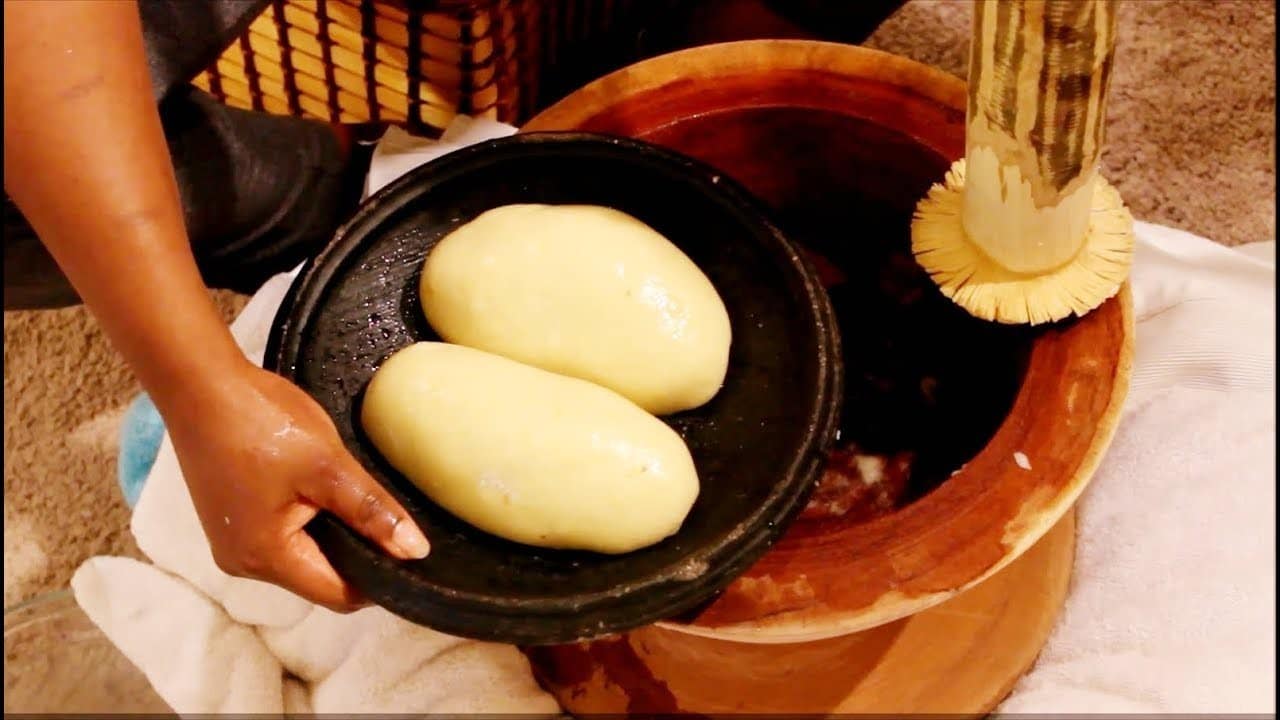Published
4 years agoon
By
GhMedia Hub
• Three hundred and thirty calories, 78.4 grammes of carbohydrates, 2.8 grammes of protein, 0.6 gramme fat, 3.7 grammes fibre, 42.4 milligrammes vitamin C (71 per cent Daily Value), 0.8 milligramme manganese (40 per cent DV), 558 milligrammes potassium (16 per cent DV), 55.6 microgrammes folate (14 per cent DV), 0.2 milligramme thiamine (12 per cent DV), 43.3 milligrammes magnesium (11 per cent DV) and 0.2 milligramme copper (10 per cent DV).
The rest are 1.8 milligrammes niacin (nine per cent DV), 0.2 milligramme vitamin B6 (nine per cent DV), 0.1 milligramme riboflavin (six per cent DV), 55.6 milligrammes phosphorus (six per cent DV), 3.9 microgrammes vitamin K (five per cent DV) and 0.7 milligram zinc (five per cent DV).
Glycemic index
One local prospective study by Eli Cophie et al.(2017) evaluated the glycemic index (GI) of five local staple foods on 10 healthy nondiabetics: fufu (locally pounded), Ga kenkey, banku, Tuo Zaafi (TZ), and fufu (processed powder).
The study found that processed-powdered fufu had the least glycemic response (31), followed by kenkey (41) and locally pounded fufu (55), all recording low GI. Tuo Zaafi (68) had a medium GI and banku (73), had moderately high GI.
GI is a classification of food based on the blood glucose response to a food relative to a standard glucose solution. Low glycemic foods control the release of glucose into the bloodstream at a steady and sustained rate, keeping the body’s metabolic processes and energy levels balanced.
People with low glycemic diets or (who) eat low glycemic foods are said to have a lower risk of getting coronary heart disease and type 2 diabetes.
These food items that have low GI would benefit those who are already suffering from diabetes, since these would help in the proper control and management of blood sugar.
This means that as a low-GI food, eating cassava or fufu can also help improve physical endurance because blood glucose levels are moderated instead of dropping when insulin is produced.
Low-GI foods also may help control triglyceride and other lipid levels in your blood. Cassava has even been called a “weight loss wonder food” due to its ability to decrease appetite and decrease fat storage in fat cells ( Kresser, 2014).
The Healthy Home Economist (2016) also calls cassava-resistant starch “the healthiest starch for your gut.”
Cassava fufu, science
One study by Marandola et al. (2004) found that cassava may also, by a different mechanism, be protective against cancer because it contains a chemical called tamarin, which is responsible for the production of hydrocyanide.
This tamarin has been shown in vitro to cause the death of cancer cells by self-toxicity with hydrocyanide. Another study by Tsumbu et al. (2011) found that cassava leaves and roots show promise against colon cancer.
Irabor (2011) found that the low colon cancer in Nigeria could be due to the consumption of resistant starch foods.
Two case studies were reported by Abeygunasekera and Palliyaguruge.
According to the fdc.nal.usda.gov, cassava is loaded with vitamin C, with 20 per cent of the Daily Value in each 3.5-ounce (100-gramme) serving. Other studies found that cassava provides about 50 per cent of the daily vitamin C needs for most adults.
Vitamin C plays a key role in many aspects of health, including immunity. Carr and Maggini (2017) found that vitamin C can help protect against oxidative stress and support the function of immune cells in your body.
Compared to potatoes, cassava is exceptionally high in potassium. A cup of cassava has 558 milligrammes, providing 16% to 21% of the daily recommendation, which ranges between 2600–3400 milligrammes per day, depending on age and sex.
Filippini et al.(2020) found that Potassium lowers blood pressure levels and can help balance out sodium intake, which raises blood pressure.
Choosing a cassava-based side dish instead of a grain-based one boosts the potassium intake of your meal.
— The writer is a Professor of Naturopathic Healthcare, President, Nyarkotey College of Holistic Medicine & Technology (NUCHMT)/African Naturopathic Foundation. E-mail: collegeofholisticmedicine@gmail.com.
source: graphic.com.gh
